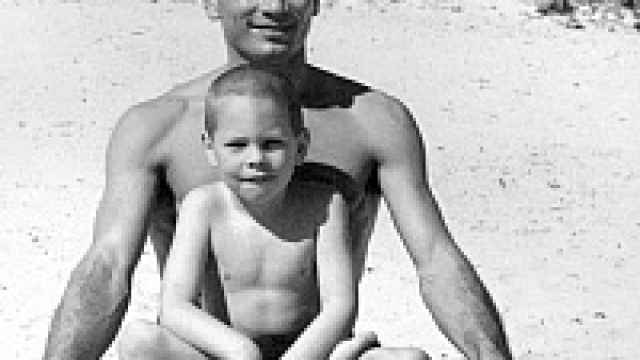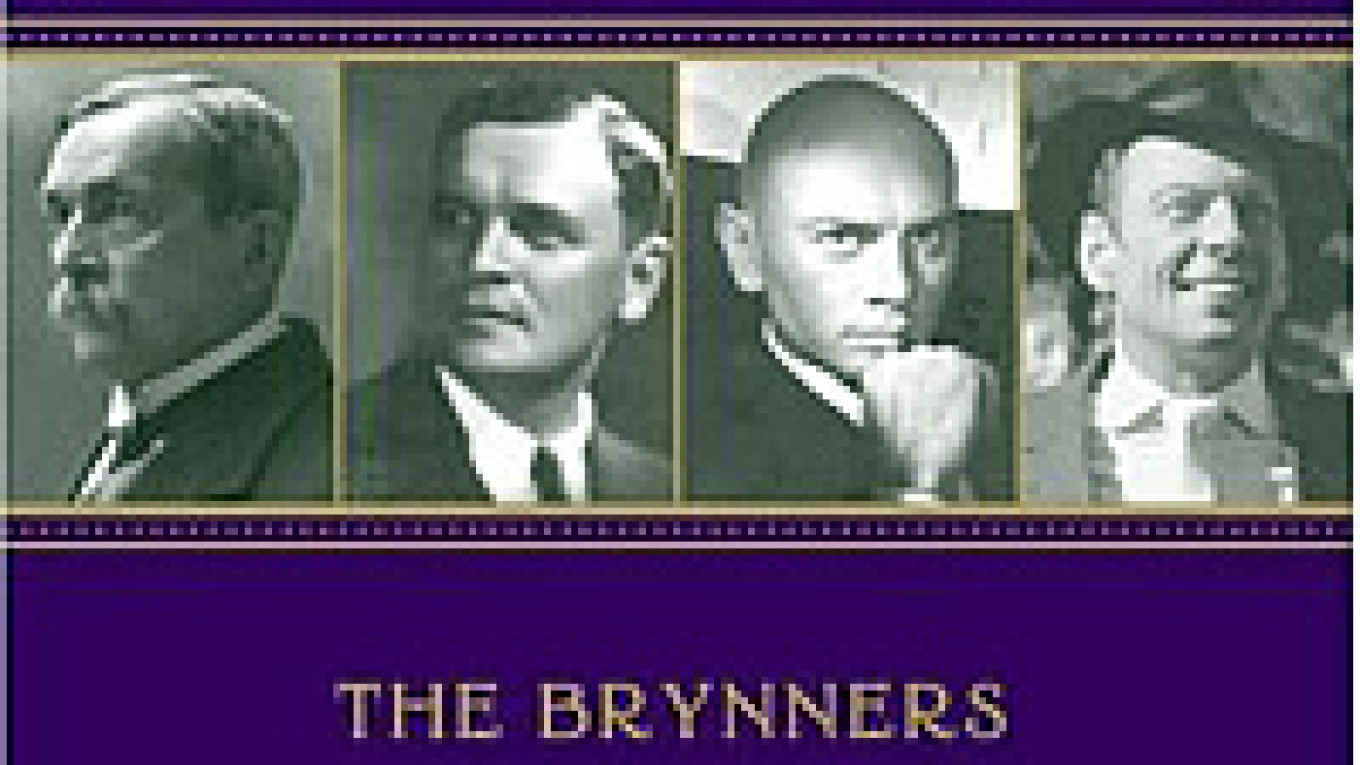"Empire and Odyssey" is simultaneously reflective and impersonal -- an autobiography wrapped in a memoir that has been expanded, through research and excellent, contextual storytelling, into a cultural history focused on a family whose business transactions contributed to the outbreak of the Russo-Japanese War, which in turn set in motion a chain of events leading to the Russian Revolution. Although the emotional core of the book -- Rock Brynner's perspective on and relationship with his illustrious, willful and gifted father -- has already served as the subject of a narrower memoir (his 1989 "Yul: The Man Who Would Be King"), here the son opens it into a larger consideration of how he and his father did and did not perpetuate elements of personality that were manifested by Yul's father, Boris (who, with his two brothers, ran the various international family businesses), and grandfather, Jules, and, from there, how the personalities and careers of all four men do and do not embody traits that are characteristically Russian, American or Swiss, or globally masculine.
Especially admirable in this page-turner is the integrity of the historian -- the way he patiently sets the larger political and cultural scene to make painful sense of what would otherwise seem pure chaos, and willingly acknowledges the claims of all parties involved in a dispute. In addition, as the son of Yul Brynner and his first wife, the actress Virginia Gilmore, the author demonstrates a touching capacity for empathy with the Brynner women, some of whom suffered psychological blows of considerable force. Brynner makes no excuses in discussing how cavalier, even monstrous, his forbearers could be when they shed their families. (Jules and Boris each had two, with children from both, while Yul had four, with children from three, as well as innumerable affairs and flings, one of which also produced a child. Rock has gone through two childless marriages.)
And yet, despite his sensitivity to the despair of the abandoned, Rock Brynner closely examines the need for self-reinvention that propelled his father, grandfather and great-grandfather to move on. Although the individual contexts and motivations differed, the Brynner men, including Rock, do hold a few things in common. Except for Boris, all share the same given name of Yul (Rock was nicknamed as a boy after the boxer Rocky Graziano); none of them lived his entire life in one country (three of them changed their citizenship at least once, and, in the cases of Yul and Rock, more than once); all were both brilliant and athletic (Yul worked in his youth as an acrobat, while Rock earned a doctorate in history from Columbia University); all exhibited extraordinarily refined taste in the arts; all prized independence above convention; and all seem to have subscribed to the practice of never looking back. Wealth and social prestige permitted freedom of action for Jules and Boris, while accomplishment and celebrity encouraged Yul to wildly indulge himself offstage even as he maintained an iron discipline in his work. Yet such defiant transgressions in the personal realm existed in tandem with a sincere concern for others' welfare: Jules clothed and fed his mine workers and their families, and Yul worked on behalf of refugees at the United Nations. In the case of Boris, a second marriage to the actress Katya Kornakova accorded an inner peace that carried him through imprisonment by Stalin. These are complex figures whose ultimate defiance is that they cannot be easily summarized, much less reduced to any specific trait or gift.
 Steerforth Press "He remained a wonderful and devoted father to me," the author remembers. | |
"Empire and Odyssey" also conveys a good sense of some other ingredients in the booster shot of Russian character and culture injected by ??migr??s into Europe and the United States after the Revolution and Civil War. One such ingredient was the acting technique originated by Konstantin Stanislavsky at the Moscow Art Theater and developed in the United States by such teachers as Michael Chekhov (nephew of the writer), who trained his Chekhov Theatre Players with detailed exercises for infusing the actor's body with "psychological qualities." Together with his collaborator, George Shdanoff, Chekhov influenced some of America's most famous and beloved stage and screen presences, Yul Brynner among them. Yul's immortal creation of the King of Siam in "The King and I," based on a two-footed stance that owed much to Chekhov's concept of a character's "psychological gesture" (as well as something to the typical stance of Yul's father, Boris), is one of America's greatest tributes to this method. "The fact that Yul became a distinctively Russian actor owed more to these years in America with Chekhov than to his birth in Vladivostok," the author writes. "Yul was a Russian actor not because of his genes but because of his technique, born at the Moscow Art Theater."
Rock Brynner's chronicle concludes with an account of the invitation that was extended to him several years ago to attend the First International Vladivostok Film Festival. (He was the first male member of his family to return to the city that Jules had helped to develop.) On that occasion, he was able to see the house where Yul was born, the mineshafts that Jules opened, and many other landmarks familiar from family stories. He has returned to Vladivostok frequently since, and his comments on Russian society today range from observations about the economy and corruption to, "Russians are noticeably self-possessed, and ... in women this is a particularly appealing quality." These final pages, alternately earnest and mischievous, are intently concerned with whether there are such things as national traits or characteristics. All readers are likely to find them of interest, and Russian readers will be able to take their measure, too.
Mindy Aloff's new book, "Dance Anecdotes," will be published by Oxford University Press next month.
A Message from The Moscow Times:
Dear readers,
We are facing unprecedented challenges. Russia's Prosecutor General's Office has designated The Moscow Times as an "undesirable" organization, criminalizing our work and putting our staff at risk of prosecution. This follows our earlier unjust labeling as a "foreign agent."
These actions are direct attempts to silence independent journalism in Russia. The authorities claim our work "discredits the decisions of the Russian leadership." We see things differently: we strive to provide accurate, unbiased reporting on Russia.
We, the journalists of The Moscow Times, refuse to be silenced. But to continue our work, we need your help.
Your support, no matter how small, makes a world of difference. If you can, please support us monthly starting from just $2. It's quick to set up, and every contribution makes a significant impact.
By supporting The Moscow Times, you're defending open, independent journalism in the face of repression. Thank you for standing with us.
Remind me later.


